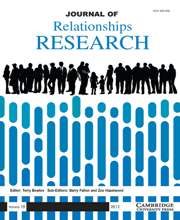Article contents
A Latent Class Analysis Approach to Extradyadic Involvement
Published online by Cambridge University Press: 29 April 2018
Abstract
Extradyadic involvement — emotional, romantic, or sexual involvement with another person outside of one's romantic relationship — may have serious personal and relational consequences. The current research examines extradyadic involvement in two samples of individuals in relationships and identifies subgroups of people based on their engagement in different types of extradyadic behaviour. To assess involvement in such behaviour, we created a new behavioural inventory intended to broaden the conceptualisation of types of extradyadic behaviours. Subgroups of individuals who engage in these behaviours were extracted using latent class analysis. Study 1 assessed undergraduate students in relationships (N = 339), and results revealed four classes of individuals: loyal, confiding, deceptive, and unfaithful. Follow-up tests demonstrated that these classes of individuals differed significantly in ways that are consistent with the investment model and attachment theory. Study 2 (N = 202) replicated the four-class solution, as well as the group differences in relationship functioning and attachment orientations. Results suggest theoretically consistent typologies of extradyadic behaviour that may be useful in differentiating deceptive behaviour in close relationships in a more precise way.
Information
- Type
- Research Article
- Information
- Copyright
- Copyright © The Author(s) 2018
References
- 3
- Cited by

